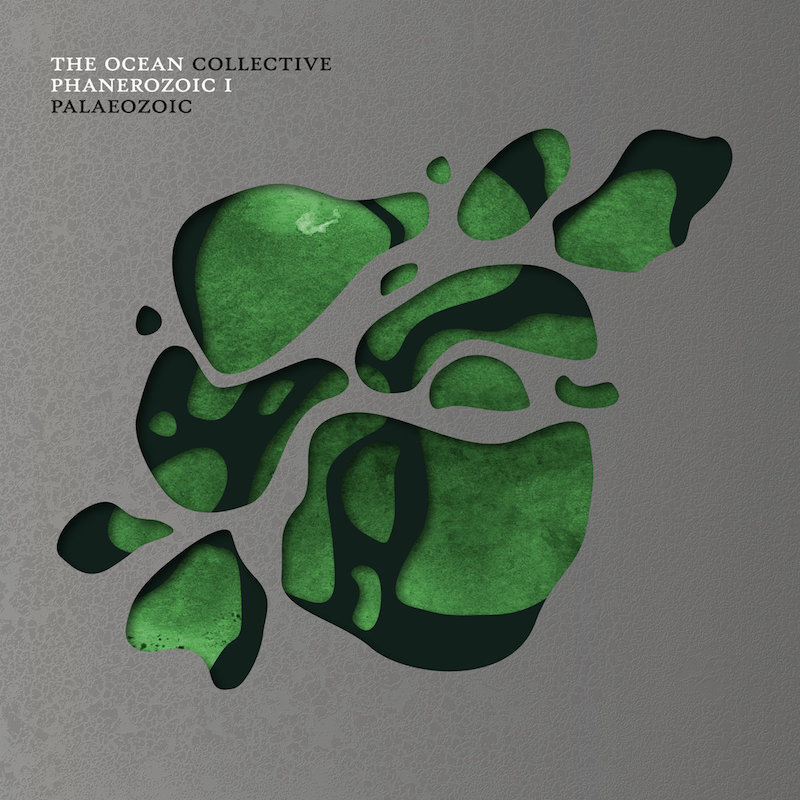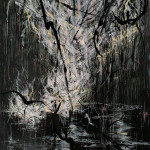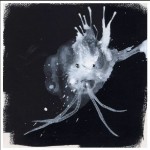The Ocean : Phanerozoic I—Palaeozoic

It’s easy to get lost in the press releases and notes that accompany this record. The Ocean has a tendency toward heady cerebralism that, to an outside, can read like music that is constructed rather than immediated. In this instance, that arises from a fairly complex breakdown of what this record is and what it seeks to accomplish: Phanerozoic is a double-disc record, with the second disc slated to come sometime in 2020, filling the gap between a previous double-disc record Precambrian (which covered the Precambrian time-period of the earth) and the double-disc set Heliocentric/Anthropocentric (which covered the Anthropocene, or the era of humanity). There’s a type of metalhead and prog fan that will salivate over this kind of nested thematic continuity in records, but to a layperson this likely reads as, at best, word salad and, at worst, pretentious nonsense covering up for music that doesn’t have that emotional gutpunch we look for in great records.
Thankfully, and for those who know the band’s work, unsurprisingly, this is not the case here. The Ocean have released exclusively concept albums since their inception, and with the exception of Pelagial, they have all been double-disc records. But the thematic heft they seem to apply to their records is best understood not as a literal history lesson about geological and biological eras of the planet but more easy symbolic space to leap off to tell personal, emotionally rich tales. In the case of Precambrian, the thematic space was of becoming, birth, being; on the Helio/Anthro set, it was of the tensions between individual becoming and structures of power, which both can cleave humanity together in spite of the strife of the individual and also cleave them apart for methods of control. So, while Palaeozoic covers the gap between these two in a historical sense, it’s better to view this as a thematic space occurring between those two poles.
For those in the know, a major series of events in the Phanerozoic period were a set of climate-induced mass extinction events. These followed massive bursts of life and biodiversity, cruelly ended by an unthinking planet crossing fast between boiling heat and freezing cold. The planet nearly lost all life, with an over-90-percent extinction rate. If this feels thematically relevant to contemporary times, where we are left bereaved and powerless before rising fascism which seems to both cruelly and inimically seek to oppress and destroy us instead of addressing the looming eschatological threat of global warming which is accelerating at rates beyond our worst-case scenarios while the rich build bunkers in New Zealand to leave the global poor and even the middle class to die off in the killing days to come, this is deliberate.
The Ocean have always worked in the proggier end of post-metal, focusing on a downtrodden and melancholic atmospheric approach to metal punctuated with stabbing syncopated prog rhythms. There is a reason why this band survived the great dying of that subgenre following its peak in the late 2000s; they have always had a knack for tunefulness and a marriage of the sweetened contemporary proggy sorrow of groups like Porcupine Tree or Riverside with the slow, trudging doom of groups like Isis or Cult of Luna. This kind of musical approach lends itself well to their occasionally melodramatic conceits, allowing them the theatrical amplification of the underlying emotionalism within their symbolic motifs. If you discard the press release, ignore the title of the record, and just put on this record, you will feel the motifs, from snatches of lyrics both sung and screamed and cinematic doom guitar riffs. This record musically continues a hot-streak they started on Precambrian and features the continued core duo of guitarist and lead songwriter Robin Staps with vocalist Loic Rossetti, who has served as the sole vocalist for the group since Heliocentric was released in 2010.
The key musical strength of the band is in how deft they are at transitioning between parts, married to a keen and studied ear for when repetitions enhance versus strip away the strength of a riff. The back end of this record, from “Devonian” on, is a continuous 25-minute push of masterclass post-metal, including fitting guest vocals from Jonas Renske of Katatonia, a group that helped shape this approach to metal a decade and a half ago. Which is not to say the first half is weak; simply weaker, paling in comparison to the heights the back half of the album reach while standing comfortably when taken on its own. The album features a line in the closing track: “I don’t love humanity, not a bit.” This is perhaps the key line in exploring the sense of bitterness that suffuses the record; it’s less an open appeal to embracing a nihilistic outlook on looming apocalypse and more a cathartic expunging of those toxic senses of rage, powerlessness, and universalized scorn in the face of planetary trauma that we sometimes (rightly) repress. It’s a theatrical statement, but art is theater, and dramatization is useful for naming and expunging things within ourselves we sometimes turn a blind eye to, without realizing that this often merely lets them moulder in our guts. Palaeozoic is a powerful statement in the face of this trying hour for our planet, one that’s unafraid to acknowledge the vast galactic grief at the thought that maybe we won’t make it out of this one, and it’s both not really anyone’s fault, somewhat everyone’s fault, and specifically the fault of a specific few. It is this emotional sincerity which guides the performances and songs, not the conceit; The Ocean use these elements to find some tangible hook to make manifest these great terrors we feel.
Similar Albums:
 Sumac – Love In Shadow
Sumac – Love In Shadow
 The Atlas Moth – Coma Noir
The Atlas Moth – Coma Noir
 Sigur Ros – Route One
Sigur Ros – Route One
Langdon Hickman is listening to progressive rock and death metal. He currently resides in Virginia with his partner and their two pets.

